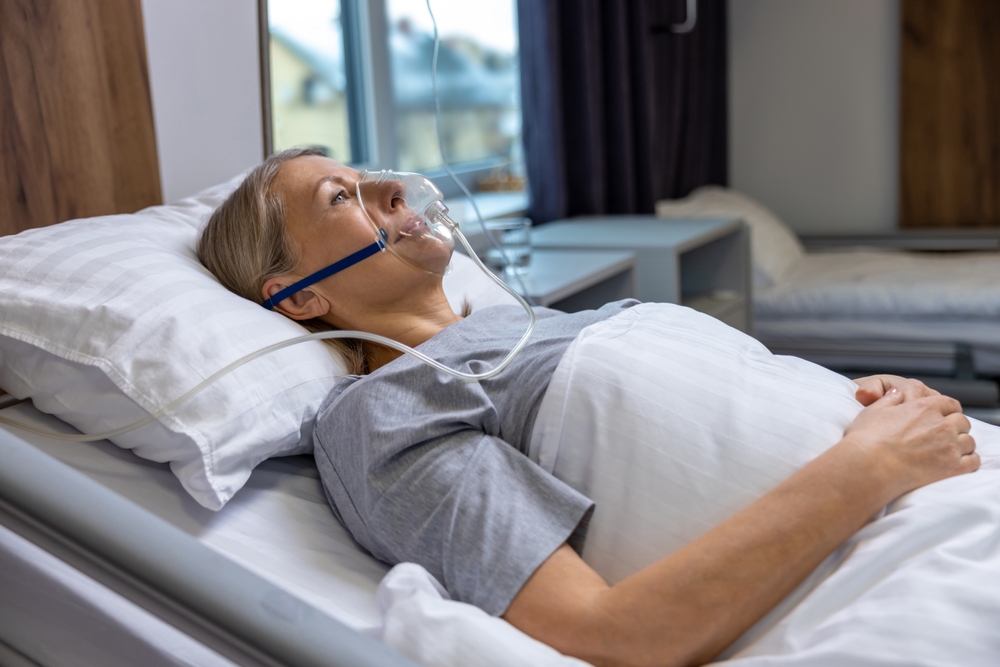A recent study has uncovered a concerning link between early menopause and an increased risk of respiratory-related deaths. Importantly, the research also highlights the potential of hormone therapy to reduce these risks and improve long-term health outcomes.
The study, which analyzed data from the Prostate, Lung, Colorectal, and Ovarian (PLCO) Cancer Screening trial, found that women who experience early menopause, particularly due to the surgical removal of both ovaries (bilateral oophorectomy), are at higher risk of dying from respiratory diseases.
This increased risk was observed in both smokers and non-smokers. The study, led by Shuguang Leng, MBBS, PhD from the University of New Mexico School of Medicine, also revealed that women who underwent early natural menopause were more likely to suffer from chronic bronchitis. Those who had their ovaries surgically removed faced an even higher risk. The study was published in Thorax.
The link between early menopause and lung health
Women who experience menopause before the age of 45 are at a higher risk for lung-related health issues. A previous smaller study showed that early natural menopause in smokers increased the risk of lung diseases and mortality. However, the study found no association between respiratory disease and mortality in smokers with surgical menopause.
The PLCO study followed 69,706 postmenopausal women, analyzing their risk of lung disease and mortality based on their type of menopause and smoking status. The research also examined whether hormone therapy could help protect against these lung-related risks. The results were clear: early menopause, especially from surgery, was linked to higher rates of lung disease and death, particularly in smokers.
The role of hormone therapy
Interestingly, the study found that hormone therapy could reduce these risks. Women who used hormone therapy after early menopause had lower rates of death from lung diseases, cardiovascular issues, and non-cancer causes. This protective effect was seen in both smokers and non-smokers, with hormone therapy also reducing the risk of lung cancer, non-ovarian cancer, and respiratory mortality in those who smoked. The risks were reduced more significantly in women taking progesterone or progesterone/estrogen as compared to estrogen-only hormone therapy.
Why is early menopause related to respiratory health?
The study suggests the existence of shared developmental pathways between the lungs and ovaries. Poor lung development may increase the risk of chronic lung diseases later in life, while early menopause might indicate underdeveloped ovaries. This connection could explain why early menopause increases the risk of lung-related health issues.
What’s next?
Researchers are now calling for targeted interventions. Women who experience early menopause, especially smokers, should be closely monitored for lung health. Smoking cessation and regular lung cancer screenings could be critical in reducing their risk. The findings also highlight the potential benefits of hormone therapy for these women.
In summary, this study emphasizes the importance of understanding the broader health implications of early menopause. If you or someone you know is going through early menopause or had surgical removal of the ovaries, discussing these findings with a healthcare provider is crucial. The right interventions could significantly reduce the risks and improve long-term health outcomes.
The Parsemus Foundation is committed to raising awareness about the benefits of menopause hormone therapy. We have also provided funding for the launch of Hormonally.org, a website that provides information on hormone health. See our other menopause-related blog posts here.




